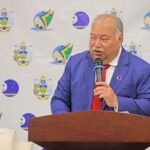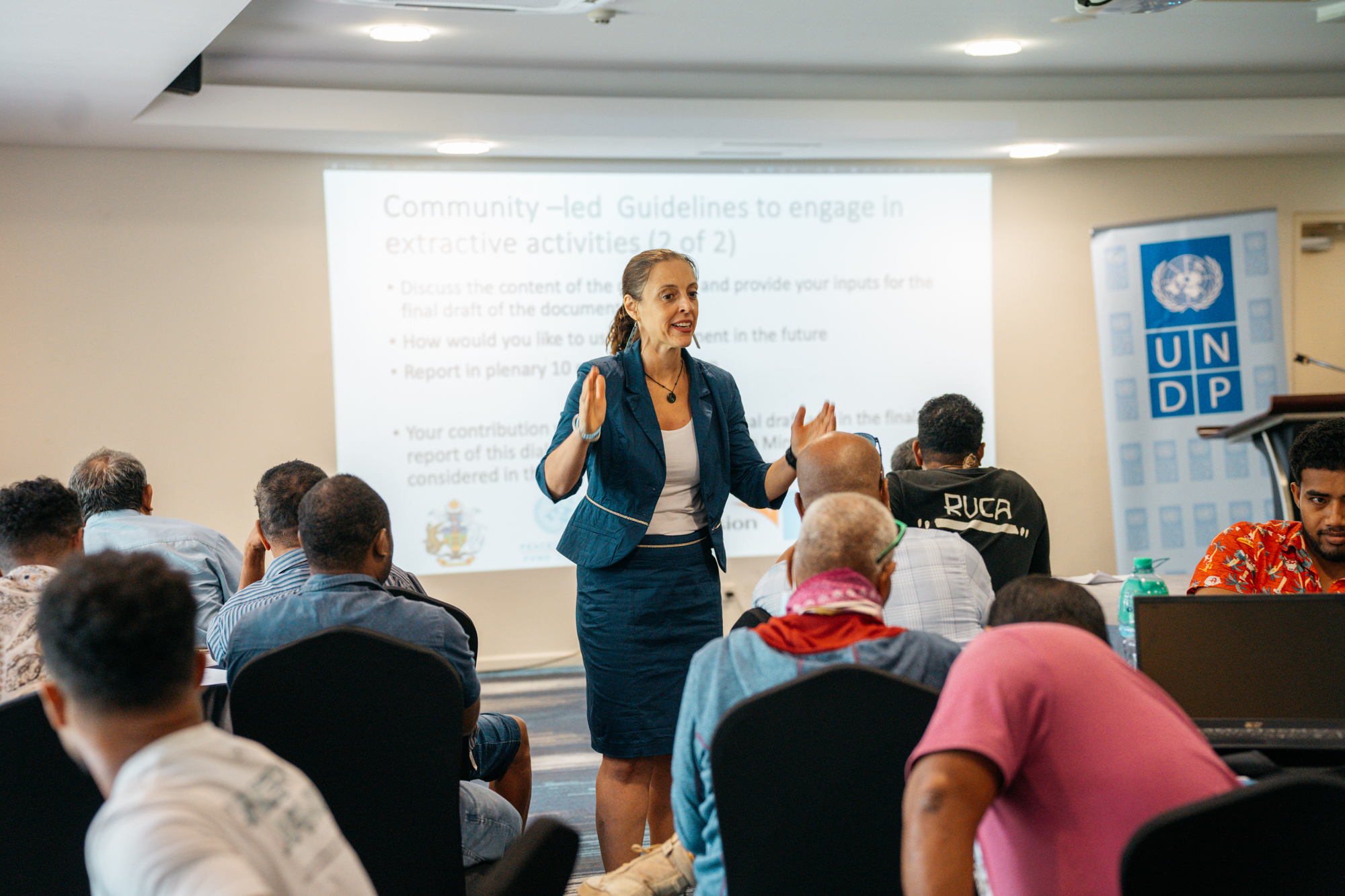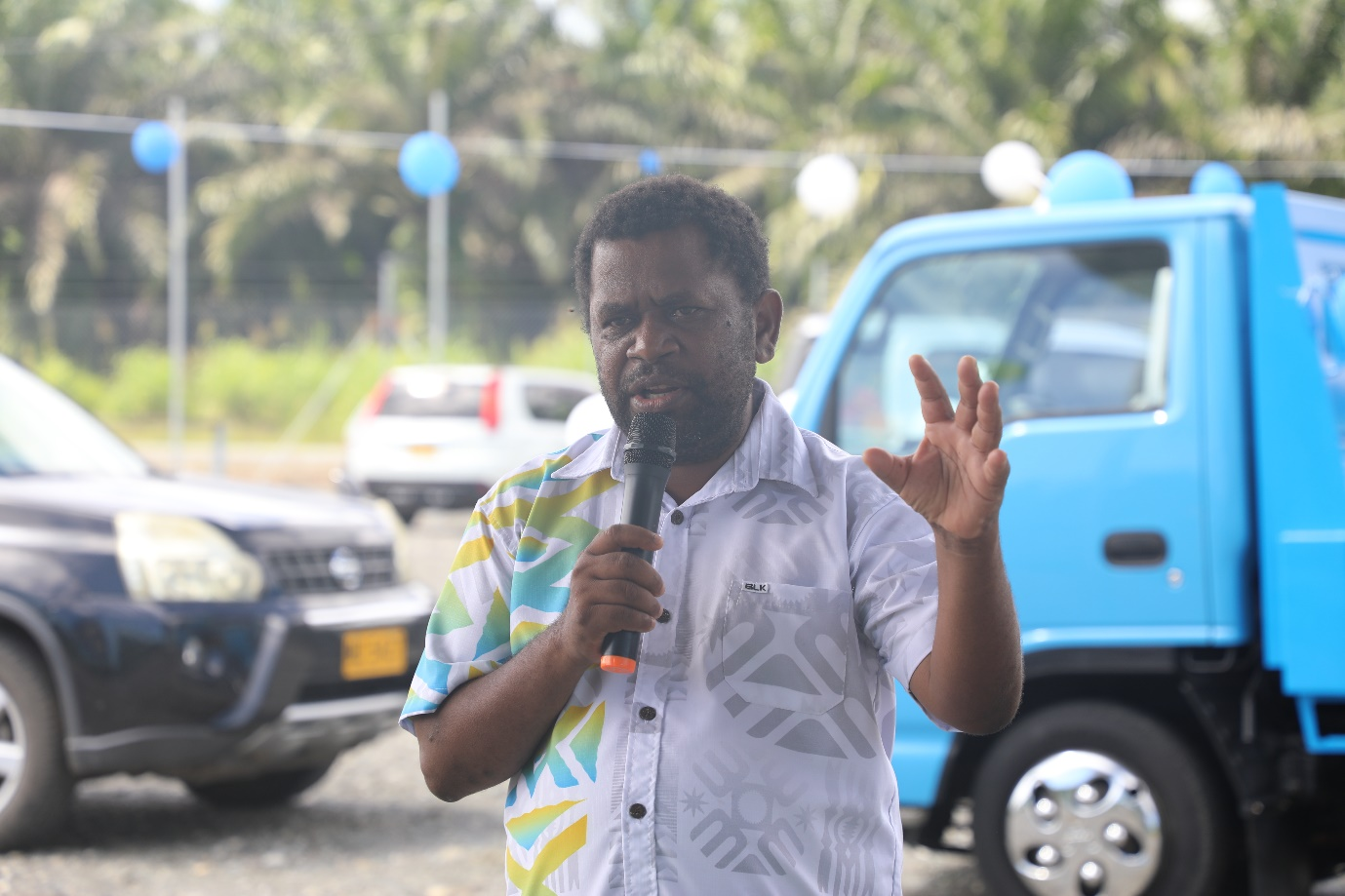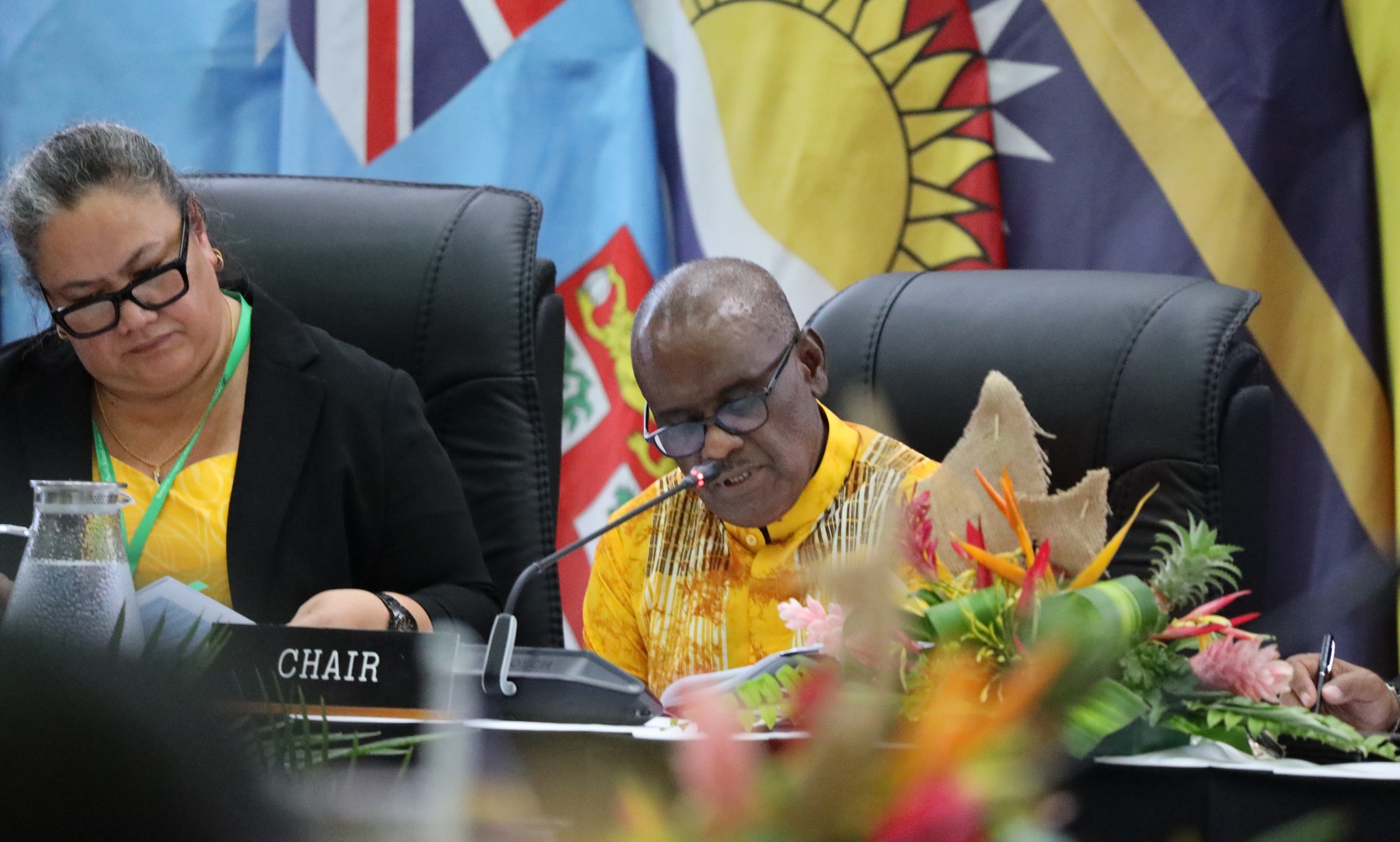Dr Francesca Mazatico during the meeting with West Rennell community to draft Community-Led Guidelines for Engagement in Extractive Activities: photo credit: Karl Bouro
IN a historic moment for Solomon Islands and the Pacific region, the West Rennell Community, in collaboration with UNDP unveils the pioneering “Community-Led Guidelines for Engagement in Extractive Activities.” This landmark document marks a significant milestone in the pursuit of sustainable and equitable management of communal land, bridging traditional governance with modern legal frameworks.
Crafted within the framework of the Peacebuilding Fund (PBF) funded project, “Bridging Traditional Governance and Rule of Law through Youth Participation as Agents of Peace and Change in Rennell and Bellona,” implemented by UNDP in partnership with World Vision International and Development Services Exchange, these guidelines embody the collective wisdom and aspirations of the RenBel community and the Solomon Islands’ people leading with extractive industries in their land.
At its core, the project seeks to empower young men and women as agents of peace and change, fostering their participation in conflict resolution and the development of innovative, locally-owned solutions for sustainable land management. With a focus on addressing land conflicts and challenges stemming from extractive activities, the project aims to enable youth and women to play a pivotal role in decision-making processes regarding their land.
The drafting of these guidelines was a collaborative effort, shaped through dialogues between the RenBel community, government representatives, and stakeholders from the extractive industries. It represents the first community-led initiative of its kind in the Solomon Islands and the Pacific region, setting a precedent for inclusive and participatory decision-making in the realm of extractive activities.
“These very much needed guidelines reflect the voices and aspirations of our community regarding extractive activities in Rennell,” says Rebecca Sina Tango from the Council of Women in Rennell. “For the first time, we have a framework that includes women and empowers us to meaningfully engage with the government and extractive industries, ensuring our rights and interests are observed and respected.”
RenBel Province, encompassing Rennell and Bellona Islands, faces unique challenges in managing its natural resources. While extractive industries brought economic opportunities, they also raised concerns about environmental degradation and social disruption. The guidelines now provide a roadmap for navigating these complexities, promoting inclusive engagement, meaningful consultation, and respect for traditional governance and sacred sites.
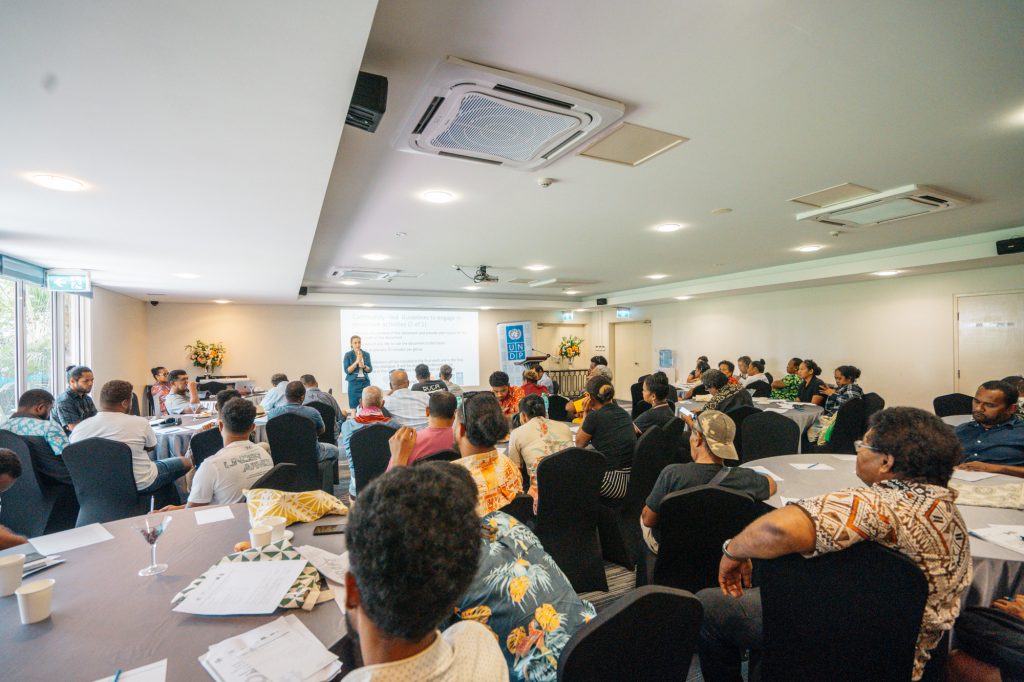
“We commend the RenBel community for their proactive approach to addressing the challenges posed by extractive activities,” says Nanise Saune-Qaloewai, UNDP Programme Manager. “These guidelines serve as a model for other communities in Solomon Islands and beyond, fostering dialogue and cooperation between indigenous peoples, their customary laws, the Government, and industries.”
UNDP’s advisor, Dr. Francesca Marzatico, indigenous lands rights and land tenure expert, and lecture at School of Surveying from the University of Otago (New Zealand), who drafted the guidelines together with the community, confirms: “The guidelines are revolutionary in many ways such as including women and the youth in decision making processes. The RenBel community is therefore taking a very bold step towards sustainable development and community empowerment. With these guidelines, they are calling upon all parties to support their efforts and champion for the first, inclusive and responsible practices of community engagement in the sensitive extractive sector”.
Enhancing peacebuilding through bringing in the youth and women in customary land recording processes, traditional rights mapping, and customary land law discussions, is part of the “Bridging traditional governance and the rule of law through youths’ participation as agents of peace and change in Rennell and Bellona” supported by the Peacebuilding Fund in Solomon Islands.
UNDP PRESS









